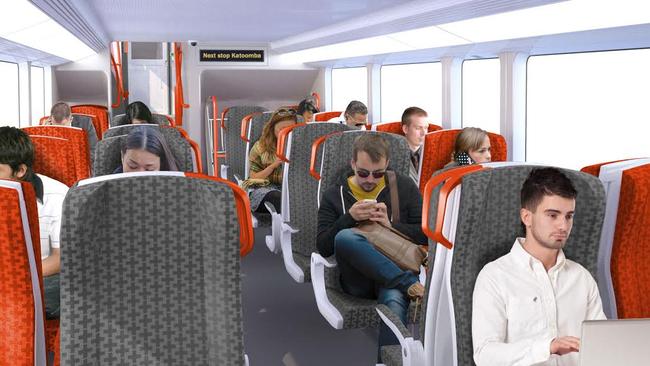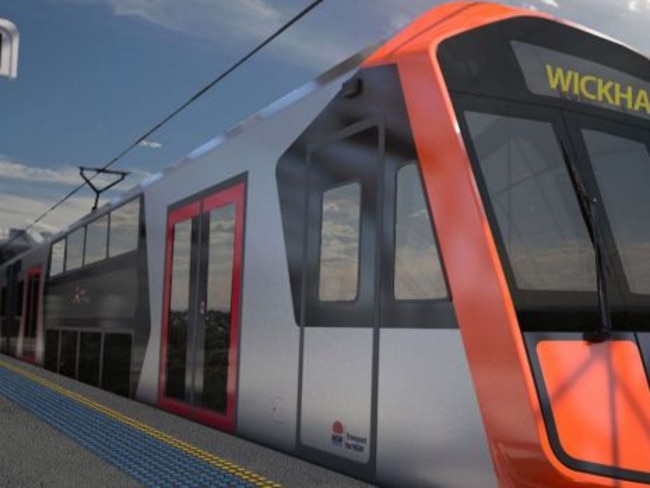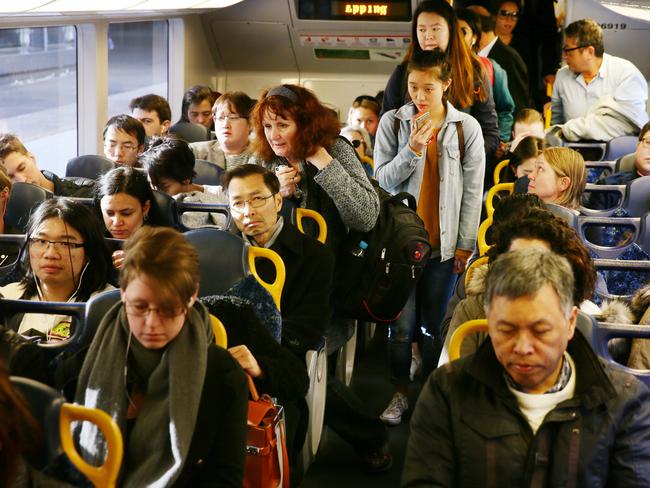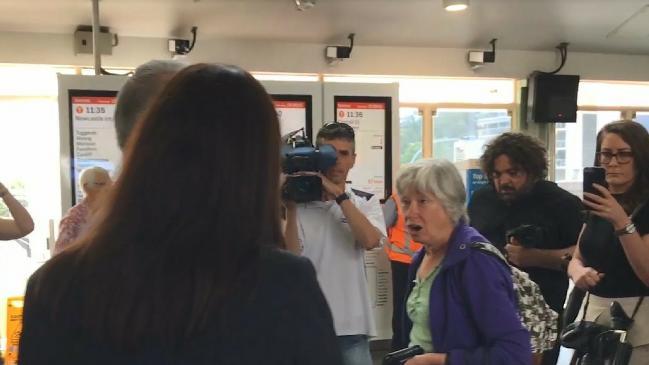New Intercity Fleet seats are not reversible, opposition claims
JUST when long suffering commuters thought things couldn’t get any worse, thousands of people could be forced to travel backwards on the New Intercity Fleet. Take our poll.

Central Coast
Don't miss out on the headlines from Central Coast. Followed categories will be added to My News.
JUST when long suffering commuters thought things couldn’t get any worse, thousands of people could be forced to travel backwards on the New Intercity Fleet.
The allegations were made by Shadow Minister for Transport Jodi McKay and Wyong state Labor MP David Harris, who say half of all train passengers travelling from the Central Coast to Sydney will be forced to travel backwards because of Government “scrimping”.

They say seating will be fixed, not reversible, on the new $2.3 billion trains.
Transport for NSW has confirmed that half of the seats on the new trains will be facing in the direction of travel.
“Customers told us they wanted two by two seating with wider seats, arm rests and wider aisles, as well as amenities like tray tables and charging outlets for mobile devices,” a spokesman from Transport for NSW said. “Many of these features would not have been possible with reversible seating.
“The seat configuration on board the New Intercity Fleet will mean that half of the seats will be facing the direction of travel, while the seats at either end of the saloon will cater for families and groups.”
Mr Harris said travelling backwards was not an option for many commuters who suffer motion sickness.
“The journey for some Central Coast passengers can be almost two hours — that’s a long time to sit facing backwards or to be forced to stand,” he said.

Ms McKay and Mr Harris allege that documents obtained by Labor under Freedom of Information laws revealed the government was warned “half the passengers on a fixed seating train usually face backwards, which is not always popular for passengers on long journeys.”
Passenger feedback on the design for the new trains indicated there is “strength of preference for reversible seating” and “fixed seats was perceived as a backward step”.
“These documents reveal that the government knows this will be an issue, but it’s going ahead with it anyway,” Ms McKay said.
This comes on top of other ongoing transport issues including new timetable changes, which added an extra stop of Burwood to Central Coast peak hour train services.

Commuters are also still waiting on the promised continuous mobile phone reception and free Wi-Fi for the long trip to Sydney.
The first of the fleet’s double deck trains will be rolled out in 2019. Transport for NSW state the fleet will include two by two seat layout, wider seats with arm rests, more space, charging stations for each seat, digital screens, airconditioning, CCTV and passenger intercoms.
There will also be dedicated space for luggage, prams, bicycles and wheelchairs, plus accessible toilets.
“Safety, comfort and accessibility are the fleet’s priority,” Transport NSW state on its website.
